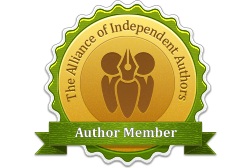I wrote this post originally as my weekly Monday morning column for Zondervan’s Engaging Church Blog. It’s a post about a new book that addresses one of the most powerful of temptations: pornography. The book is Finally Free: Fighting for Purity with the Power of Grace, and it shares a message that will liberate people from the clutches of porn by helping people take the most important first step in being free from it.
Meet Ryan and Dave.
Ryan has been married for fifteen years, Dave for twenty. Dave has two kids, while Ryan has three. Those fifteen years of Ryan’s marriage has been filled with pornography use. Dave had periodically dabbled in pornography, buying a magazine once in a while and turning to the internet in the last year. Both of their wives had finally had enough after discovering their use and threatening to leave. And both sobbed buckets of tears and made emotional pleas with their spouses not to leave.
It’s obvious these two have a lot in common: “Both have serious problems with pornography and have for some time. Both are ‘family men’ with a wife and children. Both stand to lose their family because of their sin. Both are in desperate situations as they cry and plead for reconciliation.” (32)
But here’s the thing: these two stories play out very differently.
Only one is reconciled to his wife and family and is porn-free. The other is divorced from his wife and separated from his kids. One was interested in real change when he pleaded with his wife not to leave and begged forgiveness; the other was not.
Which one do you think it was?
It’s hard to tell, isn’t it? Both men were heartbroken and sincere. Both displayed an apparent commitment to their family and appeared willing to do whatever it took to change their.
 Heath Lambert recalls these two stories in his new important resource, Finally Free. As he explains the difference, “Though they both displayed sorry, their tears were drawn from two totally different well.” (32) They were polar opposites in their lived response. This is crucial, because sorrow is the most important first step in becoming finally free from porn.
Heath Lambert recalls these two stories in his new important resource, Finally Free. As he explains the difference, “Though they both displayed sorry, their tears were drawn from two totally different well.” (32) They were polar opposites in their lived response. This is crucial, because sorrow is the most important first step in becoming finally free from porn.
But there’s a problem: sorrow can also be a deceptive first step because there are two very different kinds of sorrow. Distinguishing between the two makes all the difference. So what are they and how are they different? Heath helps us distinguish them in order to find the kind of freedom for which men and women long.
2 Kinds of Sorrow
Heath begins this chapter by quoting Paul from 2 Corinthians 7:8-11. Here Paul makes clear that there are two kinds of sorrow: worldly sorrow and Godly sorrow.
“Worldly sorrow is legitimate sorrow,” Heath says. “There is actual sadness, brokenness, and tears when a person experiences this kinds of sorrow. The issue is not whether a person is sad; instead, it is what they are sad about.” (34) This is crucial; what someone is sad about helps distinguish between worldly and godly sorrow.
“People experiencing worldly sorrow are distressed because they are losing (or fear losing) things…” This includes family, spouse, job, ministry, reputation, even sexual fulfillment and access to pornography itself.
Here’s the key takeaway: “A sad person consumed with wordily sorrow is concerned about losing stuff—no matter how honorable or dishonorably that stuff is.” (34)
Godly sorrow, though, is different. The motivation for repentance and pleas for forgiveness is drawn from a totally different well. Instead of focusing on losing the things of the world, it is focused on God himself. Here’s the crucial takeaway about Godly sorrow:
Godly sorrow is pained over the break in relationship with God. It is heartbroken that God has been grieved and offended. The tears of godly sorrow flow from the sadness that God’s loving and holy law has been broken…Godly sorrow is motivated by and oriented toward God. (35)
6 Marks of Godly Sorrow
Heath makes it clear that it is godly sorrow that motivates real and lasting change and helps bring freedom from porn. Here are are six clear markers of godly sorrow:
- Godly sorrow is earnest. Unlike worldly sorrow, it’s got staying power. “Godly sorrow is busy battling pornography weeks, months, and years after worldly sorry has given up the struggle.” (37)
- Godly sorrow leads to an eagerness to clear yourself. While worldly sorrow is quickly replaced by a renewed interest in porn and self-indulgence, “Godly sorrow longs to be clear of pornography and eagerly pursues ways to eradicate it.” (37)
- Godly sorrow leads to indignation. Worldly sorrow also produces indignation, but it’s different. It hates the consequences of sin—loss of a ministry, embarrassment over discipline, being caught and divorced by a spouse. Godly sorrow hates the sin itself.
- Godly sorrow leads to alarm. It produces a healthy form of fear, a fear “that God—the only person who matters—always knew” about this sin and a recognition of his “holy intolerance” of it.
- Godly sorrow leads to longing and concern for restoration. “Godly sorrow is pained by the wedge of separation that pornography brings between you and God,” (40) and also between you and other people, like your spouse.
- Godly sorrow leads to a desire for justice. “Doing what is right and just doesn’t always make life more comfortable for you. An immediate and critical test for whether your sorrow is godly or worldly is whether you’re willing to accept the consequences of your sin.” (41)
Throughout Finally Free Heath consistently makes the case that freedom comes from God’s forgiving, transforming grace: “You need forgiving grace for having the wrong kind of response to your sins and you need transforming grace to have the kind of broken heart that honors God.” (43)
If you are struggling with pornography, may you ask for His grace to forgive you, change you, and set you free. If you are a ministry leader may you order this book, own it, and read it, in order to pass it along in order to help our people seek Christ, ask for his grace to forgive them, and change them as they fight porn with godly sorrow.















